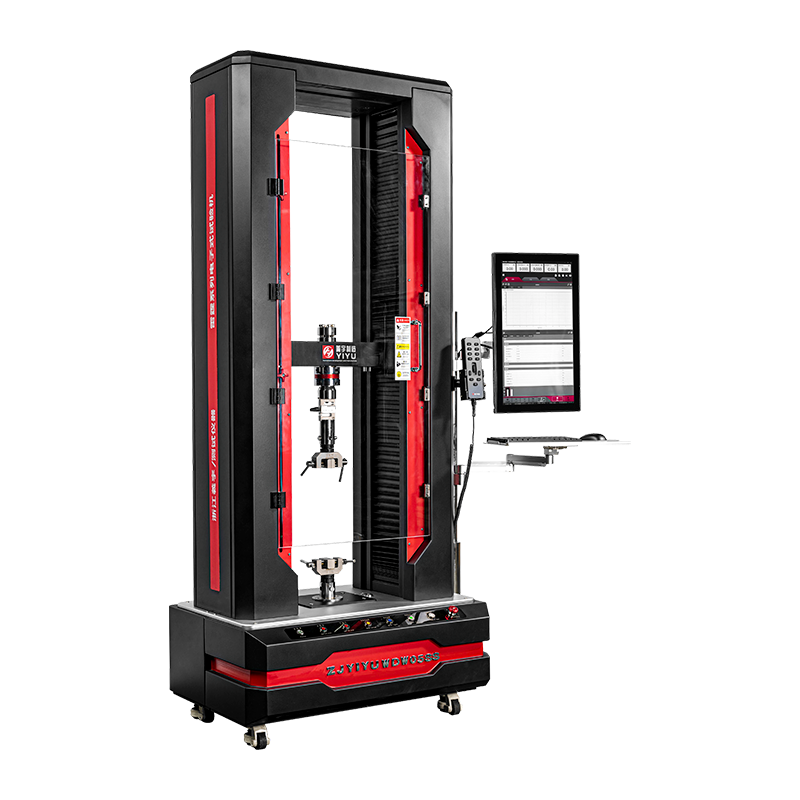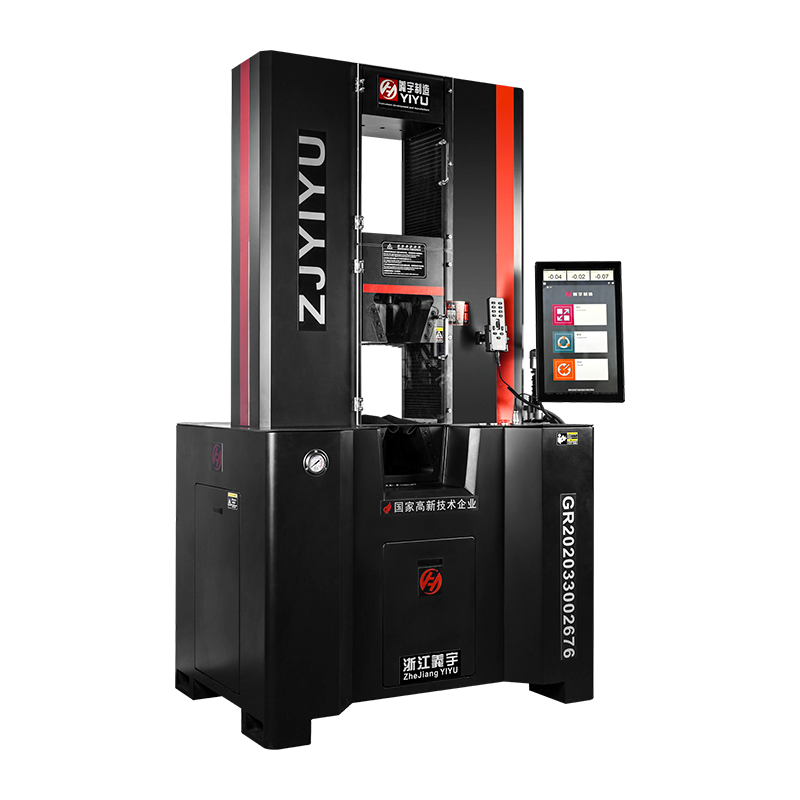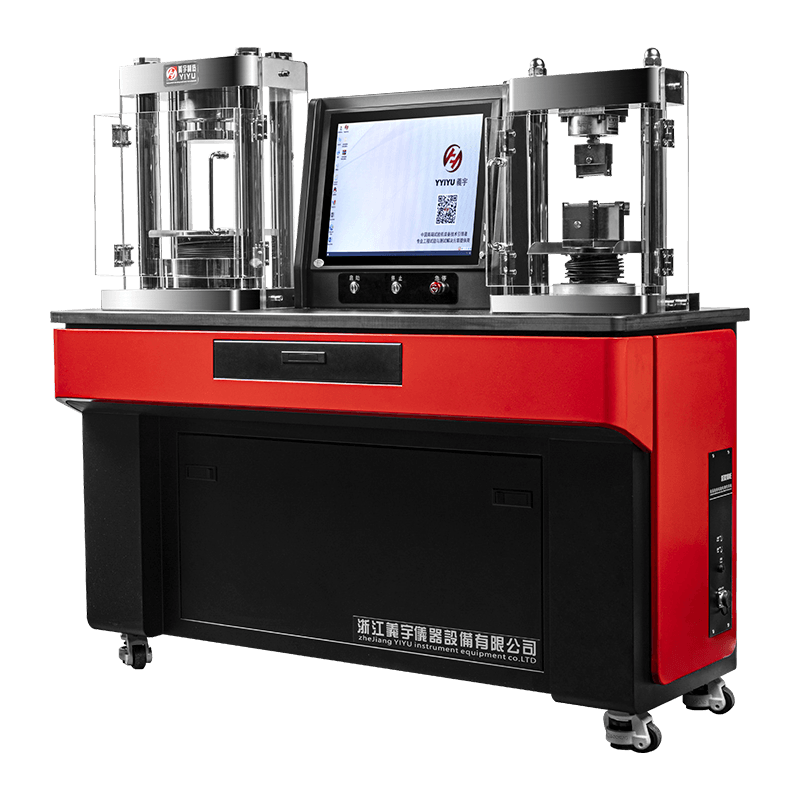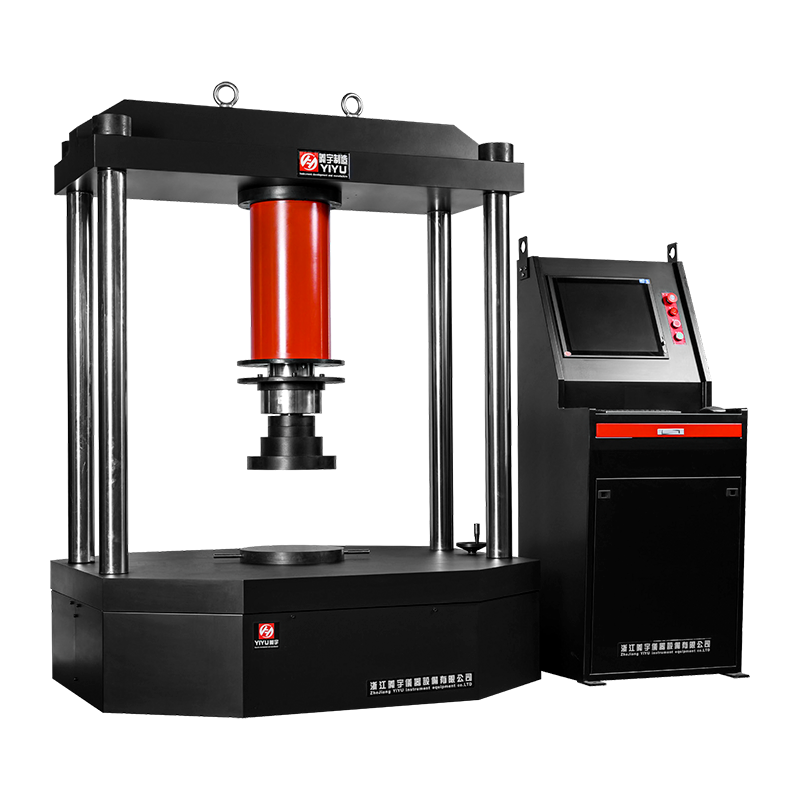With the modern construction industry's ever-increasing demands for material quality and structural safety, accurate testing of building material properties has become a critical step in ensuring project quality and safety. In particular, comprehensively and accurately assessing the compressive, shear, and tensile properties of building materials poses a significant challenge for designers, engineers, and construction companies. Compression shear testing machines, as sophisticated material testing equipment, are gradually transforming traditional testing methods and becoming a vital tool for material strength testing in the construction industry.
Introduction to Compression Shear Testing Machines
A compression shear testing machine is a type of experimental equipment specifically designed to test the performance of materials under compression and shear loads. By simulating the complex stresses experienced by building materials under actual working conditions, the compression shear testing machine accurately measures the mechanical behavior of materials under multiple loads, thereby assessing their overall mechanical properties.
This equipment is widely used in testing building materials such as concrete, steel, composite materials, and masonry. Its primary function is to measure the resistance, deformation, and failure mode of materials under varying compression and shear forces. Modern compression shear testing machines, equipped with high-precision sensors and data acquisition systems, can record stress and strain changes in real time during testing, providing engineers with detailed material performance data.
The Role of Compression Shear Testing Machines in Building Material Strength Testing
Improving the Accuracy of Building Material Strength Testing
The strength of building materials is directly related to the safety and stability of building structures. Compression shear testing machines can apply dual compression and shear loading to materials, accurately simulating the stress conditions experienced by building materials under actual working conditions. This overcomes the limitations of traditional testing methods that can only test for a single force (such as compression or tension).
Traditional material testing often focuses on a single mechanical property, such as simple compression or tension testing. This testing method fails to fully reflect the complex mechanical environments that building materials may encounter in actual use. Materials in building structures are not only subject to compression but also to deformation or fracture under shear forces. The impact of shear forces is particularly significant at beam-column joints, in seismic zones, and in high-rise buildings.
By simulating combined compression and shear loads, compression shear testing machines can more accurately test the compressive and shear strengths of building materials, providing more comprehensive data support. For example, in concrete testing, compression shear testing machines can measure the strength of concrete under both compression and shear, thereby deriving comprehensive performance indicators for the material in actual use.
Multi-angle Analysis of the Mechanical Properties of Building Materials
Building materials are often subjected to multiple forces simultaneously, especially in complex building structures. For example, reinforced concrete beams are subject to a combination of bending, shear, and compression forces. Therefore, a single compression test cannot fully assess their performance. Compression shear testing machines, through combined load testing methods, can comprehensively analyze the material's performance under complex mechanical conditions.
The key to reinforced concrete structures lies in the interaction between the steel bars and concrete. When subjected to external forces, the concrete primarily bears the compressive forces, while the steel bars primarily bear the tensile forces. Under these combined stress conditions, the material's compressive and shear resistances jointly determine the safety and stability of the structure. Using compression shear testing machines, engineers can more accurately analyze the comprehensive properties of materials, ensuring that all forces are considered in the design, thereby improving structural safety.
Improving the Accuracy of Building Material Quality Control
The quality of building materials directly impacts the safety and durability of a project, and accurate strength testing is a core component of quality control. Traditional building material testing methods often focus solely on a single strength parameter, while compression shear testing machines provide comprehensive material performance data through comprehensive testing, providing a precise basis for quality control.
For example, during concrete production, manufacturers often need to ensure that the concrete's compressive strength meets design requirements. However, under extreme environmental conditions such as high temperature and high humidity, concrete's strength can be affected. Using compression shear testing machines, manufacturers can conduct material testing under various environmental conditions, monitoring the concrete's compressive and shear strength in real time, ensuring that each batch of concrete meets quality standards and thus improving overall construction quality.
Similarly, compression shear testing machines can help building material manufacturers evaluate material performance under different production conditions, such as testing under varying ingredient ratios and curing conditions. This helps optimize production processes, improve efficiency, and enhance material consistency.
Promoting the Optimization of Building Material Design and Construction Techniques
Performance testing of building materials is not only crucial for material procurement and quality control, but also has a profound impact on building design and construction techniques. The precise data provided by compression shear testing machines allows engineers to more scientifically select materials and optimize designs, ensuring that buildings achieve the desired safety and durability in actual use.
For example, when designing high-rise buildings, structures must account for external forces such as earthquake resistance and wind resistance. By using compression shear testing machines to test the shear and compressive strength of different materials, engineers can more rationally allocate their use within the structure, reducing costs while improving building safety.
Technical Advantages of Compression Shear Testing Machines
High-Precision Measurement Capabilities
The compression shear testing machine is equipped with high-precision sensors and a data acquisition system that accurately records stress and strain data of materials under varying loads. This high-precision measurement capability ensures the accuracy of test results, ensuring that the test data provides a reliable basis for building design and quality control.
Fully Automated Operation and Intelligent Control
Modern compression shear testing machines are increasingly emphasizing automation and intelligence. Operation can be automated through computer programs, reducing human intervention and ensuring consistency and accuracy throughout each test. The intelligent control system automatically adjusts the loading speed, number of loads, and test parameters, ensuring a stable and efficient testing process.
Versatile Testing and High Adaptability
In addition to compression and shear testing, compression shear testing machines also offer a variety of testing capabilities, including tension and flexure, to meet the testing needs of diverse materials. Whether it is concrete, steel, plastic, rubber or other materials, compression shear testing machines can provide accurate mechanical performance data to meet the increasingly diverse needs of the construction industry.






